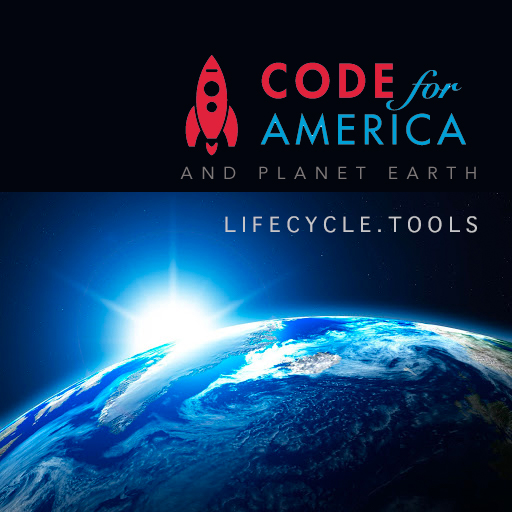Sustainable Communities Web Challenge
The U.S. Environmental Protection Agency (EPA) and Code for America are pleased to announce the launch of tools for local communities interested in identifying areas for economic growth using 22 environmental sustainability indicators, including job growth, value-added, air quality, climate impact, energy, water, and land use across 389 industry sectors.
The Sustainable Communities Web Challenge culminates on October 2, 2021 with $10,000 in awards using new embeddable, open-source web applications.
Also supported by the Georgia Center of Innovation for Energy Technology, the challenge is open to community representatives, coders and designers who will compete in helping to shape and deploy the new tools with local, regional and national themes.
During the event, community app portals are being developed using new mapping and Life Cycle Assessment (LCA) tools to explore environmental and economic outcomes resulting from changes to levels of goods and services in the pursuit of innovative sustainable material management.
Join in our upcoming work sessions for an overview of the web challenge and to start working on your community app entry.
Learn More about the EPA Web Challenge
Tuesday, September 28, 2021 from 10AM to 12PM EST
Final Event
Saturday, October 2, 2021 from 10AM to 6PM EST
Register online at https://model.earth to join the challenge. An invitation will then be sent with information regarding meetup dates and Slack workspaces, where participants can collaborate with other project members. Participants are encouraged to document their time contributions so judges can also reward individuals based on their levels of involvement. Participants can compete from anywhere in the world!
Register Online: https://model.earth
Virtual Location: Zoom Meetups and Slack
The project's community tools expand on development by Georgia Tech Smart Community Corps (SCC) students who worked with EPA Southeast Region #4 and the Georgia Center of Innovation for Energy Technology during the summer of 2020 during which visualization tools were added to the US Environmentally-Extended Input-Output (USEEIO) model of industries, households and the environment.The online tools use the US EPA’s premier model for estimating environmental profiles of industries and goods and services that embody a life-cycle perspective called the US Environmentally-Extended Input-Output (USEEIO) model which combines local employment, industry levels, and geographic data to provide community-specific insight. The additions added during the challenge will include analyzing changes in industry input and output for use by businesses, community planners, teachers and students through a collection of modules that can be added to any website.
US Environmentally-Extended Input-Output Model (USEEIO)
Embeddable input-output widgets use data precompiled by the EPA from dozens of sources, including the US Bureau of Economic Analysis (BEA) and the US Department of Commerce, to provide environmental and economic insights for hundreds of industries. Amazon is among the companies using USEEIO data to set goals for reducing their carbon footprint to net zero.The Life Cycle Assessment (LCA) model of goods and services was created by the EPA in support of Sustainable Materials Management. The model is in use by experts in industry, academia (24+ U.S. universities), the nonprofit sector, and other federal agencies. In 2019, the Georgia Center of Innovation for Energy Technology began partnering with the EPA Region 4 to develop the country’s first state version of the national USEEIO model, which now provides the Application Programming Interface (API) for the current Web Challenge. Additional states will use the new online tools and widgets in the year ahead.
To get involved with this opportunity, please register online at https://model.earth.
